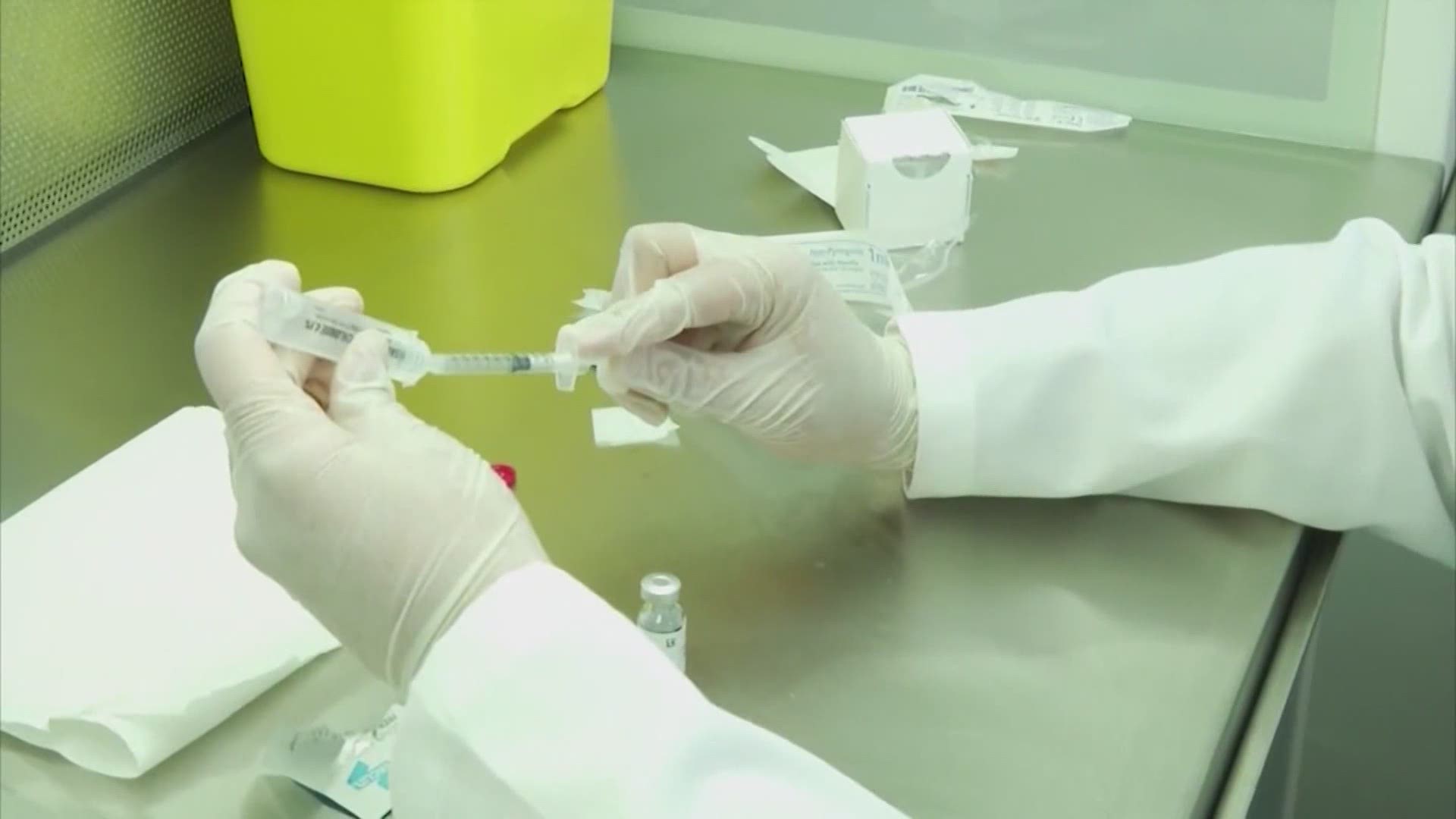HOUSTON — The United States early Tuesday morning recommended a pause of the Johnson & Johnson COVID-19 vaccine to investigate rare reports of potentially dangerous blood clots.
The Centers for Disease Control and Prevention and the Food and Drug Administration said they were investigating clots in six women.
The clots were observed in the sinuses of the brain along with reduced platelet counts — making the usual treatment for blood clots, the blood thinner heparin, potentially “dangerous.”
At least one death was reported and another woman was said to be in critical condition — none of these blood clot cases were reported in Texas.
J&J said in a statement Tuesday that it was aware of the reports but no official link to its vaccine had been established.
More than 6.8 million doses of the J&J vaccine have been administered in the U.S., the vast majority with no or mild side effects. At a morning press conference, health officials said the "pause" was to allow for further investigation and to give more time for medical facilities to prepare and learn how to react to any more blood clot cases.
J&J vaccine blood clot symptoms: What to know and what to watch for
- "Adverse events appear to be extremely rare and are being further evaluated to ensure vaccine safety," Texas health officials note
- Unusual clots in six women occurred 6 to 13 days after vaccination, the CDC says
- The clots occurred in veins that drain blood from the brain and occurred together with low platelets
- All six cases were in women between the ages of 18 and 48
- Symptoms: People who have received the Johnson & Johnson vaccine who develop severe headache, abdominal pain, leg pain or shortness of breath within three weeks after vaccination should contact their health care provider
- Treatment: U.S. health authorities cautioned doctors against using a typical clot treatment, the blood-thinner heparin. “In this setting, administration of heparin may be dangerous and alternative treatments need to be given,” the FDA and CDC said
More on blood clots from the CDC:
Know the Lingo About Blood Clots
Deep vein thrombosis (DVT): Blood clot located in a deep vein, usually in a leg or arm.
Pulmonary embolism (PE): Blood clot that has traveled from a deep vein to a lung.
DVT and PE are also known as VTE (venous thromboembolism).
Blood Clots Affect Many People
VTE affects as many as 900,000 Americans each year.
As many as 100,000 people die of blood clots each year.
Everyone Is at Risk. Some Factors Can Increase This Risk.
Hospitalization and Surgery – One-half of blood clots occur during or soon after a hospital stay or surgery.
Being Immobile – Not moving for long periods of time (for example, extended bed rest or extended travel).
Other Risk Factors
- Older age
- Overweight or obese
- Family history of VTE
- Recent or recurrent cancer
- During and just after pregnancy
- Estrogen-based medicine such as hormonal birth control or hormone replacement therapy
- Injury and trauma
- Know the Signs, Symptoms and Risk Factors
DVT Symptoms
- Swelling
- Pain
- Tenderness
- Redness of the skin
- PE Symptoms
- Difficulty breathing
- Faster than normal or irregular heartbeat
- Chest pain or discomfort, which usually worsens with a deep breath or coughing
- Coughing up blood
- Very low blood pressure, lightheadedness, or fainting
What You Can Do to Prevent Death or Complications of a Blood Clot
- Know your risks and recognize symptoms.
- If you have any symptoms, see your doctor as soon as possible. Blood clots can be safely treated by your doctor.
- Before any surgery, talk with your doctor about blood clots.
- Tell your doctor if you have risk factors for blood clots.
The Associated Press contributed to this report

